| Reviews & Columns |
|
Reviews DVD TV on DVD Blu-ray 4K UHD International DVDs In Theaters Reviews by Studio Video Games Features Collector Series DVDs Easter Egg Database Interviews DVD Talk Radio Feature Articles Columns Anime Talk DVD Savant Horror DVDs The M.O.D. Squad Art House HD Talk Silent DVD
|
DVD Talk Forum |
|
|
| Resources |
|
DVD Price Search Customer Service #'s RCE Info Links |
|
Columns
|
|
|
Benoit Jacquot Collection (The Disenchanted / A Single Girl / Keep It Quiet), The
The Collection:
Benoît Jacquot is from the generation of French directors right after the famed New Wave; it's a generation influenced both by that earlier iconoclastic movement and by the more traditional American and French films that inspired its key players. Jacquot's films teeter across a tightrope of tossed-off naturalism and carefully crafted poetry. Cohen Film Collection (who recently released Jacquot's 3 Hearts) has brought together three of the director's best known films from the '90s, in a great-looking and nicely supplemented set. It offers a nice primer for viewers unfamiliar with this infrequently heralded director.
The Disenchanted (1990) 
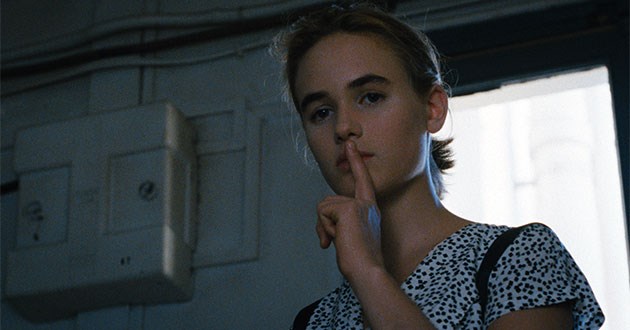
The first film in this set is a coming-of-age story with surprisingly dark undercurrents. The Disenchanted (La désenchantée) follows young, beautiful Bêth (Judith Godrèche) as she navigates a world of men who all want to possess part of her youth and beauty. Her never-named boyfriend (Malcolm Conrath) starts off the film with a self-serving request that Bêth should find an ugly dude and sleep with him so that she can appreciate him better. Needless to say, our heroine doesn't take this suggestion in stride, although she decides to give it a whirl out of spite. She finds the perfect mark, a rich, pimply nerd (Francis Mage) who doesn't even know what to do with her. (Their initial meeting on a youth club dance floor is a brilliantly executed moment of unflinching cringe comedy.) It turns out that even on a dare, Bêth can't bring herself to do it.
But, even then, Bêth isn't off the hook. Her ailing mother (Thérèse Liotard) has been keeping the family going, with the financial support of a man (a family member?) nicknamed Sugardad (Ivan Pesny). Sugardad has presumably tired of the older woman, because he has begun withholding money until 17-year-old Bêth gives herself to him. (I told you it got dark!) As she ponders her possible fate, Bêth works on a graffiti stencil with her nice-guy school friend Chang (Hai Truhong Tu) and later picks the brain of an interesting, middle-aged knife enthusiast (Marcel Bozonnet).
The film is light on plot but heavy on characterization. Every interaction between the characters is loaded, creating small mysteries about their internal life and interpersonal dynamics at the same moment that other, older mysteries are solved. Judith Godrèche, who later came to international attention with the Oscar-nominated Ridicule, is impossible to look away from in this film. It's not just because she is beautiful -- and because Jacquot is highlighting that beauty at every moment -- but because her face is so open that you can read her every thought and emotion as if you were telepathically linked with her. It is startling and electrifying. And yet, we never know until it is almost too late what Bêth is going to do about the Sugardad situation. And that's what keeps us watching.
A Single Girl (1995) 
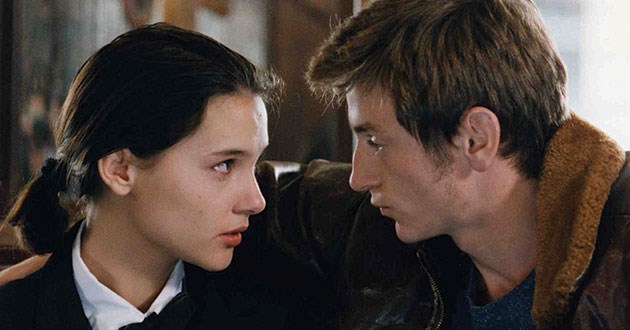
Each of the films in this set take place over a relatively compressed time frame, but the scope of A Single Girl (La fille seule) is certainly the tightest; the film takes place mostly in real time. At the beginning of the film, Valérie (Virginie Ledoyen) has asked her boyfriend Rémi (Benoît Magimel) to meet her at a cafe early in the morning before she has to go to work. She hems and haws about what she has to say, but he already knows: she's pregnant. She's pretty sure that she wants to keep the baby, but -- surprise -- he's not sure about what he wants. After their conversation ends, leaving everything up in the air, she says she will find a way to come back to the cafe in an hour and they can figure things out.
Then, for the next hour of the film, we follow her as she goes to work. It turns out that this is not an ordinary day at work either. It's Valérie's first day working in room service at a fairly nice hotel. She ends up having to navigate new coworkers and hotel guests, all while trying to figure out what she is going to say to Rémi at the end of that hour. A Single Girl is like The Disenchanted in that it also explores the perils of being young and beautiful, as everyone Valérie encounters immediately judges her and acts toward her based on those judgments rather than who she might actually be as a person. A slightly older female coworker treats her coldly, and a male coworker looks at her legs when she gets on a step stool to grab some corn flakes.
Jacquot makes sure the camera is following her closely at all times too, tracking behind her, beside her, in front of her, as she tries to find her place in this world. This approach also echoes The Disenchanted, which should be considered a sister to this film. Virginie Ledoyen, however, is much more opaque than Judith Godrèche, which makes it slightly harder to stick with her character throughout. Valérie's youthful impetuousness is believable, but when we see her vacillate and emotionally flail in her conversations with Rémi, it is more than mildly confusing what her point-of-view is.
This aspect of the character, on top of the frequent tediousness of the film's real-time conceit, make A Single Girl the weakest film in the set. (In my opinion, of course; A Single Girl is probably Jacquot's most acclaimed film released in the U.S.) That is not to suggest it is a failure, however. Moment to moment, the film has plenty of jaw-droppingly perfect scenes executed with subtlety and grace. It's just that the complete film does not quite cohere in a way that is more powerful than those discrete moments.
Keep It Quiet (1999) 
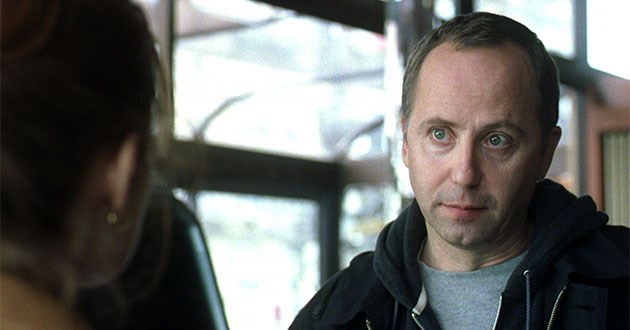
The final film in the set, Keep It Quiet (Pas de scandale), is the oddest of the trio but also the most moving. It follows two brothers at odds for reasons that are never quite clear, maybe not even to themselves. Grégoire Jeancourt (Fabrice Luchini) is a wealthy businessman who has just returned from four months in prison after possibly taking a fall. (More than once he says quietly, "I am not responsible: I am guilty.") The time behind bars appears to have changed something in him, because he returns to the real world with an awkward quietness about him. It's a naivete and simplicity that calls to mind Chance the gardener from Being There. Meanwhile, his brother Louis (Vincent Lindon) is an uptight TV talk show host, who worries about what Grégoire is going to do to the company (and to him) now that he's out of prison. Louis is also dealing with his crumbling marriage to Véronique (Sophie Aubry) and whether or not he should come clean to her about a particularly big personal secret.
Isabelle Huppert also appears in the film as Grégoire's wife Agnès, who is reserved and fairly cold to her husband. Her reaction to his sudden transformation into a childlike being of joy and love could best be described as bitter amusement. When she learns that he has suddenly become infatuated with her hairdresser Stephanie (Vahina Giocante), all she can do is crack a smile.
Once again, plot is not of primary importance here, although Jacquot and co-screenwriter Jérôme Beaujour do manage to make their seemingly disparate story threads -- which includes Stéphanie's stormy relationship with her ex-con boyfriend (Ludovic Bergery) -- meet and intertwine at unexpected junctures. This is a film that succeeds on the basis of its magnetic performances and the unusual intricacies of personality that they manage to uncover. The typically babbly Fabrice Luchini is truly excellent here, playing against type as a man who behaves as though words have no more utility for him. Lindon and Huppert are playing roles that are more typical for them, but with enough subtlety and shading that their work never feels rote.
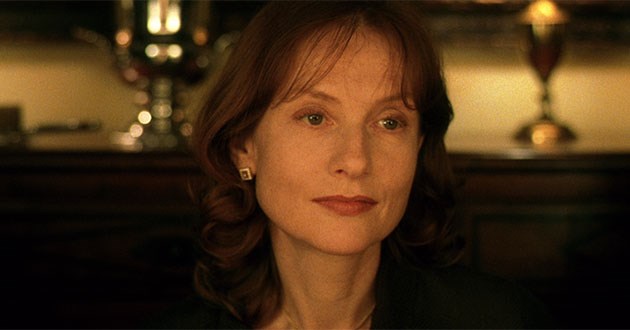
The Blu-ray
The Benoît Jacquot Collection comes on two Blu-rays, with The Disenchanted on its own disc and the other two films sharing the second.
The Video:
Although the box makes no explicit reference to it, these three films have clearly undergone a recent high-quality digital restoration. The three AVC-encoded 1080p presentations (1.85:1 for the first two, and 2.35:1 for Keep It Quiet) boast tremendous clarity and crispness. You can easily make out the pores in all of the lead actors' faces if you look close enough. There is no dirt or damage, and the film grain structure is discernible and attractive. While the color palettes on these films are not exactly eye-catchingly vivid, there is still strong saturation and nuanced contrast. Wonderful!
The Audio:
All three films come with French LPCM 2.0 stereo mixes (with optional English subtitles) that are clear and damage-free. The films are pretty much dialogue-driven, with sparingly used music (A Single Girl is particularly bare in this respect), but Jacquot and his sound designers do a good job of using soundtrack ambience and offscreen conversations to create subtle dramatic effects.
Special Features:
- All three films are given a scholarly rundown that is both informative and entertaining, with Major and Cogshell talking variously about the production of the films, their themes, and their visual language. Definitely worthwhile.
Final Thoughts:
An outstanding collection of offbeat character studies, headlined by some of the finest actors France has produced and directed by one of its top talents. These new restorations are gorgeous and deserve to be seen and savored. Highly Recommended.
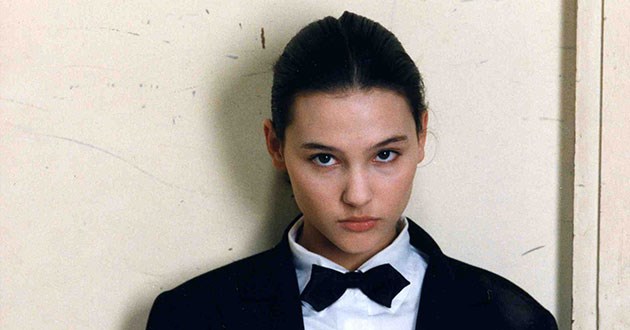
Justin Remer is a frequent wearer of beards. His new album of experimental ambient music, Joyce, is available on Bandcamp, Spotify, Apple, and wherever else fine music is enjoyed. He directed a folk-rock documentary called Making Lovers & Dollars, which is now streaming. He also can found be found online reading short stories and rambling about pop music.
|
| Popular Reviews |
| Sponsored Links |
|
|
| Sponsored Links |
|
|
| Release List | Reviews | Shop | Newsletter | Forum | DVD Giveaways | Blu-Ray | Advertise |
|
Copyright 2024 DVDTalk.com All Rights Reserved. Legal Info, Privacy Policy, Terms of Use,
Manage Preferences,
Your Privacy Choices | |||||||











